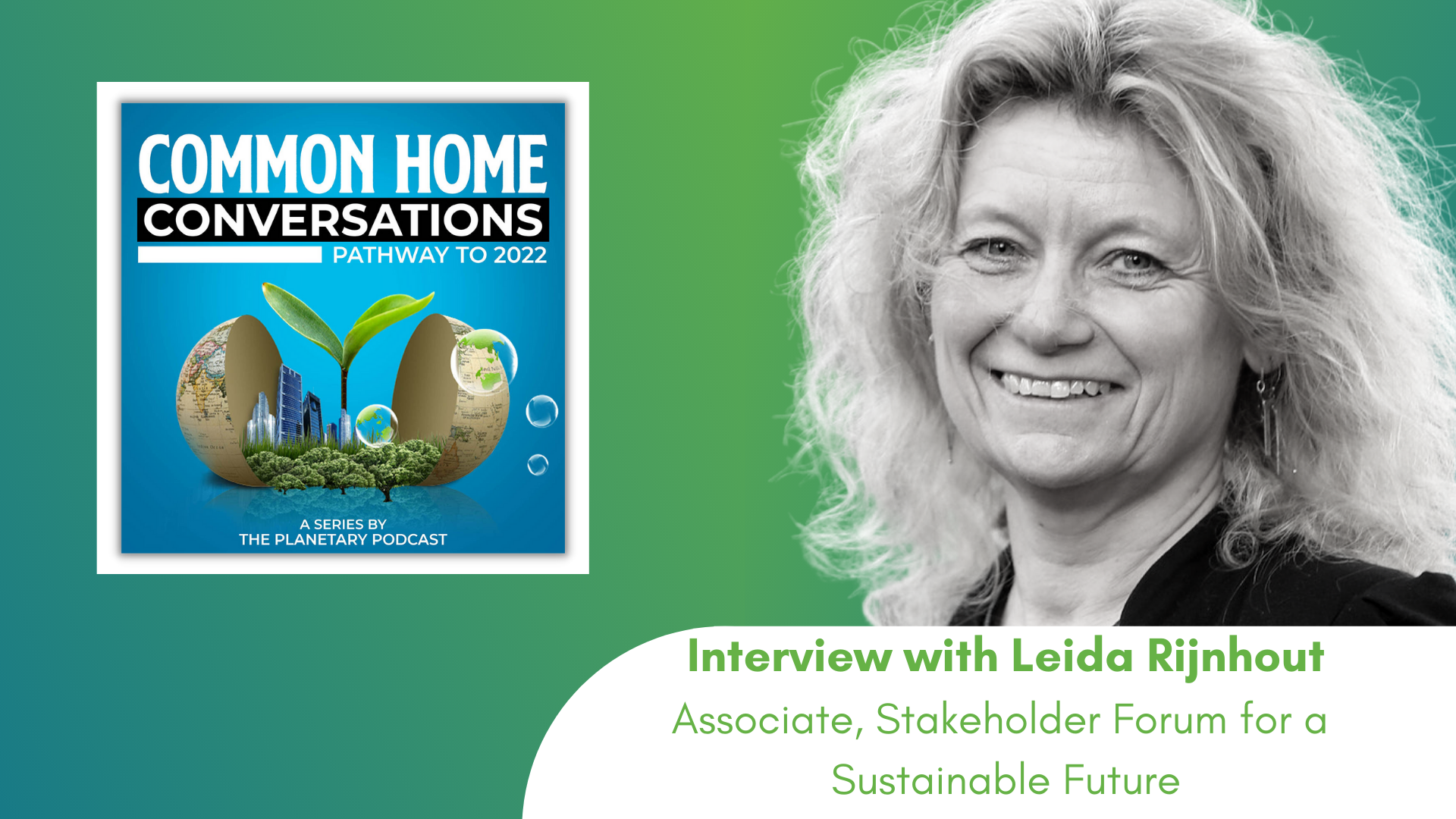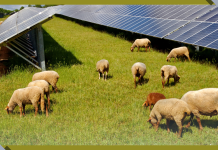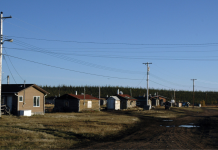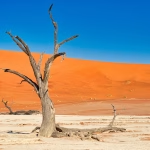Interview Transcript
Transcribed by Otter AI
Kimberly White
Hello and welcome to Common Home Conversations. Today we’re joined by Leida Rijnhout, environmental justice expert and an Associate at the Stakeholder Forum for a Sustainable Future. Thank you so much for joining us. Leida, can you tell us more about the Stakeholder Forum for a Sustainable Future and what it aims to accomplish?
Leida Rijnhout
Sure, the Stakeholder Forum is an international non-profit organization that aims to enhance open and transparent decision-making at all levels. For that, we support civil society organizations in giving their inputs in several decision-making processes at the government and UN-level. We are a kind of bridge between the official processes and civil society groups. At the Stakeholder Forum, we are a group of experts and advisors that all work together in a team and have several projects as well.
Kimberly White
Can you tell us about your work on facilitating the civil society meetings to coordinate their input to push for a Global Framework for Environmental Governance and Law at the UN?
Leida Rijnhout
I have decades of working with civil society organizations to guide them and facilitate them in giving inputs in UN processes. When the resolution of the United Nations General Assembly 72/277 was adopted, Member States started to negotiate a Global Pact for the Environment. That meant that there were several working groups organized. Member States and the UN are always happy that civil society organizations are giving their input. Also, because NGOs often have very bright ideas, new ideas to help this process. It was clear that member states were not ready yet to have a Global Pact for the Environment. So after many meetings, they kind of agreed on the fact that they will continue the process, but they will start first with a high-level political declaration done in 2022. So that meant another process, this time guided by UNEP and not the General Assembly. And again, we were invited- the civil society organizations- to give our inputs on the whole idea on the Declaration. As civil society, there are many, many groups engaged in this process. So my task is to facilitate the process and to have a coordinated input for the Member States so that they know more or less what we want as NGOs. So the next milestone for us is to have a summit in October where civil society organizations come together and discuss what kind of issues should be in that Declaration. It’s a political declaration. So that means for us, and now I’m also speaking a little bit on my own behalf, I think if you have a political declaration, I think it has to include commitments from the Member States to continue this process because it is very clear that a lot of things are already happening related to environmental governance and to environmental law. But it’s still a little bit not coordinated from UNEP’s side or from the Member States’ side. So there’s still a lot of work. So I’m a little bit afraid that we are not ready yet to have everything in a consensus for 2022. So that’s why we are asking that 2022 will be the kickoff for the Member States and UNEP to start a longer process to really negotiate a whole package for having a global framework on environmental governance and law. So that’s what we are now aiming for.
Kimberly White
Now, you mentioned that the Member States were initially hesitant when this was first introduced. Why do you think that is?
Leida Rijnhout
When people hear the word pact, they are kind of like, “We don’t want it.” We still have a lot of countries that are absolutely not in favor of any legally binding or even not legally binding international agreements. We have seen the problems with the Paris Agreement. I mean, it’s still, for a lot of countries, kind of a no-go. So that’s why it was difficult to have the countries on the same page.
Kimberly White
How can civil society influence Member States to take concrete action on environmental issues such as climate change, biodiversity loss, or environmental degradation?
Leida Rijnhout
I think there are a lot of things that civil society can do, but I will limit myself to this one on campaigning for a global framework for global governance and law. Because I think that, for me at least, it’s key for doing all the other things. We need a level playing field. We cannot afford any more private sector, multinationals, or governments going to the lowest points where there is no environmental regulation, law, or governance, and where they can damage the environment where they want. So I think we need something which is global that guides not only us, as governments or citizens, but also the private sector on what the rules are, etc. There is already a lot of regulation on labor conditions, and there is a lot on health, etc. There is a lot of environmental governance and law as well, but it’s not coordinated, and it’s not enforced. There are no compliance mechanisms to see if a country is respecting the environmental laws that are existing. So I think that is something that UNEP, which is the environmental program of the United Nations, that is now also upgraded to UNEA, the United Nations Environmental Assembly. So that means that all Member States are part of this process. I think they should take the lead there. They really have to show that this is the only body within the United Nations that has the mandate to really take leadership in implementing environmental governance and law. Member States have their role, as well, as we are talking about the environment, the commons. So something that is not a private property of someone- it’s a collective property of everybody. There is not someone that can say, “Well, this is mine.” So I think for that, we need a global framework for managing, maintaining, and protecting all of those commons, such as air, soil, water in the oceans, etc. So I think there is no escape there. It has to be on the global level that it has to be organized. And, of course, the implementation is also on the national level because we still have national laws on environmental issues.
Kimberly White
Now, I think when we talk about global environmental governance with civil society, there are a lot of questions on what that means and what could be the potential benefits of such a governance system. Could you elaborate on this?
Leida Rijnhout
I think global governance and the rule of law is something that a lot of civil societies are not so interested in because they work more on topics, such as air pollution, plastic pollution, climate change, etc. But I think it’s also important to have a global framework that gives us the rules of the game- the rules of the game for all the kinds of things that we are doing in our economy, let’s say. It’s clear that the market is not going to think about it because the market is really more about exchanging services and goods, and it’s not regulating their own. That’s not what they do. I mean, some economists do believe that, but we see in reality that it’s not. So we need regulation of the market, we need not only in governance but also in law. It is still a kind of free goods for many companies to use, the air, water, and soil, to damage it. Some countries are looking at it, but in many countries, it’s kind of “Okay, that’s bad luck.” Because it is very important that that company is there because it delivers jobs and economic growth, etc. So I think until now, the environment, or the commons, are seen as something that is free and available for everybody, while, of course, it is not. Because if you are going beyond our planetary boundaries, that means that we have a lot of negative effects not only for future generations but also within our own. But you also see that a lot of negative impacts from our way of living, especially in the Global North, is also in the Global South. So that means that we are not really having a fair way of organizing our economy, our markets. And for that, of course, we need regulation. And as most of the things are already transboundary, we need an international regulation, which is, as we see it, is the global framework for environmental governance and law.
Kimberly White
Climate change and widespread biodiversity loss are symptoms of a more significant underlying problem: our current development model. In developed countries, the way we live, the way we consume, the way we import and produce, create negative externalities “somewhere else” such as over-exploitation of resources, land degradation, poverty, etc. However, because this happens “somewhere else,” we have this “out-of-sight, out-of-mind” mindset. How can we move beyond this mindset and become more conscious of our impacts beyond our borders?
Leida Rijnhout
It is indeed about a mindset. I think it is important that we are becoming aware of the way we are consuming and producing. I would not blame consumers for everything. I think it is getting more and more difficult for them to know where the products are coming from, what is the whole product chain because it’s getting quite complicated. I don’t think that you need some kind of university degree to go to the supermarket and see where things are coming from, what they are made of, etc. So I’m very in favor of focusing on the production side. We have to phase out all unsustainable products, and that you can do with regulation. That’s what we call choice editing. So that means that all the products that are damaging the environment, first of all, they become much more expensive because one of the regulations, or one of the things that I think we are aiming for, is having internationalization of the external costs into price. Though, that’s a difficult way of saying that we want the producers to compensate, or, at least, to restore their environmental damage. That means that it costs something, and that should also be part of the price. So that means that unsustainable products are more expensive than sustainable products, which is now the other way around. So I think that is something that could be done. You can also think of having a ban on some products. In Europe, we have product norms, and most of those product norms are related to personal health impacts. For example, asbestos is forbidden because it causes cancer in people. I think we can make this broader, so that product norms are also done for more public health. If a product is really causing too much climate change, for instance, then you can say, “Okay, let’s ban this product. It’s not coming into the market.”
I think it’s also about capping norms. The IPCC, the International Panel for Climate Change, made targets per country, per region, per sector on CO2 emissions. You can have a similar exercise on resource use. I’ve been inviting the International Resource Panel to come up with calculations on targets per country, per sector on how much natural resources they could use for several productions, and you just can’t go over it. So that means that companies, the bigger multinationals, are just forced to use less resources. I think, in general, we need policies to maintain our economy within the planetary boundaries. So I think that is something that is key.
Kimberly White
I agree with you on the level of consumer awareness. It is hard to know where a lot of these products come from and how they were produced. A lot of people don’t know that international trade, for example, has been linked to 30 percent of global species threats, and a lot of that can be attributed to the consumers in wealthy nations because as demand increases for commodities produced in developing countries, their biodiversity footprint increases. Unsurprisingly, a lot of these related biodiversity threats are highest among the G20 countries due to the consumption of products such as coffee, tea, or sugar. For developed countries, approximately 44 percent of their biodiversity footprint can be linked to things produced outside of their own national boundaries. It’s just one of those things where you don’t really recognize it because it isn’t something you’re seeing- it happens elsewhere. It is that “out-of-site, out-of-mind” mindset like I mentioned earlier.
Leida Rijnhout
It is very important to have that in mind. I think that it is so clear that the international market is not regulating herself or himself. But I think for that reason we need that international regulation and governance. And I think what is also very important with the global governance framework is that you also push for countries to have Ministries for Environments. You see more and more countries abolishing the Minister of Environment, which I think is really bad. Also, in European countries, they try to mainstream it in other ministries, Ministry of Infrastructure, Ministry of Spatial Planning, etc., or limited to only energy and climate, but not having an overall Minister of Environment. There are still, of course, but it’s getting less, which I think is a bad sign. Having such huge international and environmental challenges, I don’t think that we can afford to abolish Ministers of the Environment. So if you have, let’s say, your environmental protection institutionalized in your country, in your whole governance structure, then I think you have a better guarantee that it is taken care of.
Kimberly White
Absolutely. In the United States, we have the U.S. Environmental Protection Agency. Unfortunately, as elected officials come and go throughout the years, there is a chance for the next government to roll back environmental protections, which is frustrating. So there really has to be a system of accountancy for protecting the environment that is capable of withstanding shifts in political narrative or interest. As the world begins to recover from the ongoing COVID-19 pandemic, many governments are focused on returning to business-as-usual and not realizing the potential of nature-based solutions to boost their economies. The World Bank just recently released its report on economics and nature. The report found that humanity and nature are interlinked- humanity is completely dependent on nature for our survival, wellbeing, and economic prosperity. And if we continue to push ecosystems, they’re going to reach a tipping point, which could either cause them to shift to a new state or collapse completely. This collapse could result in a severe economic decline, causing an annual decline of nearly $3 trillion in the global GDP by 2030.
Leida Rijnhout
Absolutely, the costs of nonaction are also quite high. As you said, we are all dependent on nature and the environment. So often, protecting the environment was seen as a kind of luxury thing to do. When you have everything, then you can try to protect the environment- but it’s the other way around. We are totally dependent on our ecosystems and our environment. If we start to destroy it, that means that we cannot have an economy. I think even after many, many years, the trade unions saw that there are no jobs on a dead planet. So I think they also made that mindset shift that protecting nature and the environment is just as important as protecting jobs.
Kimberly White
Absolutely. Now, in 2019, the UN Special Rapporteur on Extreme Poverty and Human Rights, Philip Alston, said that despite contributing just a fraction of global emissions, developing countries will “bear the brunt of climate change,” and the world is at risk of a “climate apartheid” scenario. As we have seen in recent years, there is a growing call for climate justice around the world. In your opinion, how can the 2022 Declaration contribute to the fight for climate justice?
Leida Rijnhout
Well, firstly, I would like to talk about environmental justice and not only climate. For most of my life, I worked on natural resources and not that much on climate change. So yes, I think it would help environmental justice because now we see that more environmental damage than is necessary is done in the Global South. Mining is often in South America because, of course, they have more resources, but also because it’s easier for a mining company to do business there because the environmental regulation and the social regulation are not that hard. I think if we have a level playing field for all the things that we are doing, whether it’s related to chemicals, mining, CO2 emissions, etc. if that’s the same for all the countries, I think that we will already have more environmental justice because the laws are the same. Also, companies will use better technology than they have in the Global South- something that we haven’t seen. If you compare mining sites in Europe with mining sites somewhere in Congo, there is a huge difference because the company is not using the best or cleanest technology to take out the resources that they need for, let’s say, the batteries for the electric cars, etc.
So I think that having the things on paper is not enough. That’s why I think that having a declaration is absolutely not enough because it’s just a piece of paper and good intention where the Member States say, “Okay, this is what we want.” So that’s why I’m absolutely keen that in that Declaration already is a political commitment of the Member States to start a process for another three to four years where we can negotiate a global framework for environmental governance and law. As I said, the time was not right yet for a lot of Member States to really have a global pact. I think we are still not there to have a global framework, I think we need another three, four years to negotiate on that. We did more or less the same with the SDGs in Rio+20 in 2012. Member States committed themselves to start a process to develop and establish the 2030 Agenda. Three years later, in 2015, we had the 2030 agenda with the 17 SDGs. It has principles, targets, indicators, etc.
That’s something that we have in mind now, but specifically on environmental governance and law. And that is, of course, related to the SDGs, but it’s a standalone framework because environmental governance and law need standalone institutionalization within the governments. So if we have three years for establishing and negotiating together with the Member States and civil society to establish this global framework, then that would have, like the SDGs, principles, goals, targets, means of implementation, how to do the technology or the knowledge transfer, capacity building, having a better overview on where the funding can come from, indicators, and also the monitoring of the progress and not do voluntarily. So that we can have a monitoring system as well for a country to see how far they are in the implementation and in the enforcement of the law and governance. There is already a lot of international environmental law. We have multilateral environmental agreements, but what is often lacking is the implementation and the enforcement, the compliance. So that is something that needs more focus, and that is what we are aiming for with the Declaration. Once everything is in place, I think it will be a step forward in achieving more environmental justice.
Kimberly White
Thank you, Leida. Before we go, could you share what you think should be included in the Civil Society Draft Declaration, which will be discussed at the Stockholm+49 Summit, for it to be a true gamechanger?
Leida Rijnhout
I think what should be included is the political commitment of all Member States and UNEP to start a process in the coming three, four years to establish a global framework for environmental governance and law, which includes principles, goals, targets, means of implementation, indicators, and a strong monitoring scheme for progress made in the countries. When we have that, I think we will have achieved the first step to a better world because then we have a better level playing field for governments and companies to maintain, protect, and manage our commons and our environmental system on this planet.
Kimberly White
All right, and there you have it. To better address the climate crisis, we need a level playing field. We cannot afford any more ‘business as usual’ from the private sector or governments damaging the environment whenever and wherever they want. The costs of inaction are too high. Our commons have been seen as something free and available for everybody; it is not. If we exceed our planetary boundaries, there are negative effects for future generations as well as our own. We need something global that guides us, a global framework for environmental governance and law, to maintain, protect, and manage our commons and our environment on this planet. That is all for today, and thank you for joining us for this episode of Common Home Conversations Pathway to 2022. Please subscribe, share, and be sure to tune in on August 25th to continue the conversation with our special guest, Helena Lindemark, Founder of the 2022 Initiative Foundation. And visit us at www.ThePlanetaryPress.com for more episodes and the latest news in sustainability, climate change, and the environment.
For more episodes, visit Common Home Conversations Pathway to 2022







